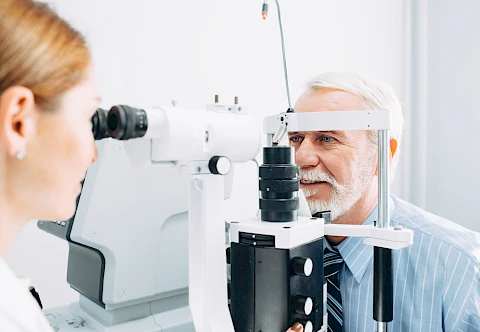
A crucial part of keeping seniors healthy and independent is preventing falls. Falls can lead to serious injuries and have long-lasting effects on a senior's quality of life. One often overlooked factor in fall prevention is eye health. Poor vision can significantly increase the risk of falls and related injuries. This Senior Helpers blog post explores the connection between eye health and fall risk and offers tips on maintaining optimal eye health to help reduce the likelihood of these incidents.
Statistics on Falls and Injuries in Seniors
Falls are a common problem among seniors. According to the Centers for Disease Control and Prevention (CDC), one in four Americans aged 65 and older fall annually. This can often lead to severe injuries, including hip fractures, head trauma, and sometimes even death. A simple accident like slipping on a wet floor or tripping on an exposed cord can result in broken bones and long-term disability.
How Poor Vision Contributes to Fall Risk
Poor vision can make it difficult to see obstacles, steps, or changes in floor levels. This increases the risk of tripping or falling. Vision problems can also affect balance and depth perception, making it harder to move around safely. Seniors are more likely to face various vision conditions that can contribute to falls, including the following:
- Cataracts: Cloudy areas in the eye's lens that can blur vision.
- Glaucoma: A group of eye conditions that damage the optic nerve, frequently leading to vision loss.
- Age-related macular degeneration (AMD): A disease that affects the central part of the retina, leading to loss of central vision.
Tips for Maintaining Good Eye Health
To reduce the risk of falls, seniors need to take steps to maintain good eye health. Here are some key strategies:
Get Regular Eye Check-Ups
Regular eye check-ups are vital for detecting and treating vision problems early. Seniors should have a comprehensive eye exam at least once a year. An eye exam usually includes tests for visual acuity, eye pressure, and an evaluation of the health of the retina and optic nerve.
Wear Updated Eyeglasses
Wearing the right eyeglasses can make a significant difference in preventing falls. Make sure your eyeglass prescription is up-to-date as vision can change over time. Consider getting anti-reflective coatings or photochromic lenses that adjust to different lighting conditions.
Ensure Proper Lighting in the Home
Good lighting is essential for preventing falls. It improves visibility and reduces shadowy areas where falls can occur. Use bright, non-glare bulbs and ensure hallways and staircases are well-lit. Consider installing night lights for dark spaces, especially in bedrooms and baths.
Eat a Healthy Diet and Stay Hydrated
A diet rich in fruits, vegetables, and omega-3 fatty acids can contribute substantially to overall eye health. Drink plenty of water to stay hydrated. It helps keep your eyes properly lubricated and free of debris or dust.
Protect Eyes from UV Rays
Wearing sunglasses that block 100% of UVA and UVB rays outdoors is one of the best ways to protect your eyes from the harmful effects of the sun. A wide-brimmed hat can also make a difference.
Senior Helpers is Here to Help
Senior Helpers offers a wide range of comprehensive, in-home senior care services. If you live in the Cameron Park, Sacramento, Plymouth, or Shingle Springs areas, contact us anytime at Senior Helpers Cameron Park - El Dorado County. We are happy to help you or your loved ones take proactive steps to ensure good eye health and lower fall risk.